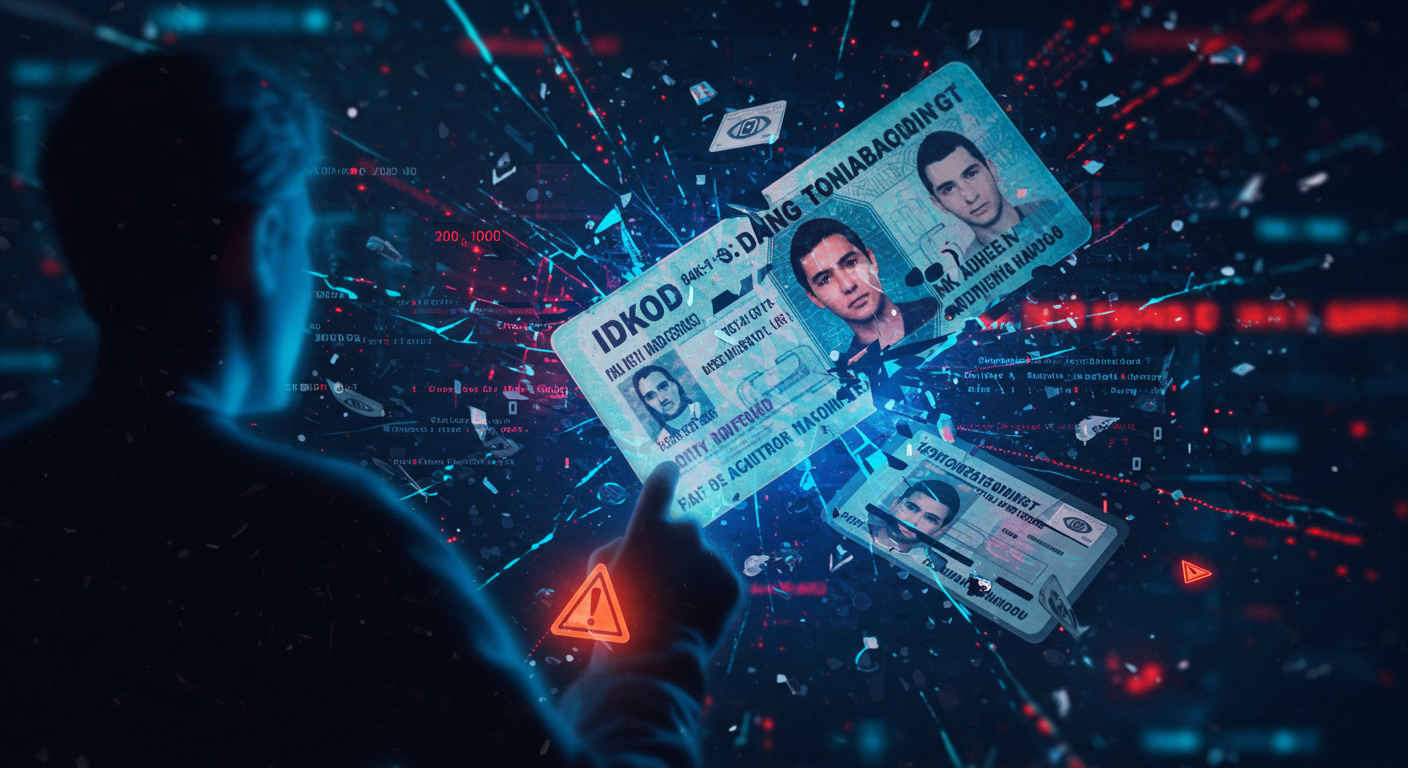In the shadowy corners of the internet, one name has stood out for years: IDGod. This term has become almost synonymous with the production and sale of fake identification cards, particularly those that mimic government-issued IDs. While the name IDGod is often spoken about in whispers among college students and young adults, the reality behind it is more serious than most might think.
This article explores what IDGod is, how it operates, and most importantly, the legal, ethical, and digital security risks tied to using or purchasing fake IDs online.
What Is IDGod?
IDGod refers to a network of websites (often appearing and disappearing over time) that claim to provide high-quality fake IDs. These IDs are typically designed to resemble driver’s licenses or state-issued identification cards from various U.S. states or other countries. The term IDGod is used as a brand name and, in some circles, has become shorthand for any source of counterfeit identification.
These sites market themselves heavily toward underage individuals who want to access age-restricted venues like bars, clubs, or alcohol retailers. However, IDGod is not a single company—it represents a rotating set of operators that often use the same name to build credibility and capitalize on past reputation.
How Does IDGod Work?
Online Ordering System
The typical IDGod website operates like a normal e-commerce platform. Users can:
-
Choose their preferred state or region for the ID
-
Upload a photo and personal information
-
Select shipping options
-
Pay through cryptocurrency, gift cards, or other anonymous methods
Once the information is submitted and payment is made, the service claims to manufacture and ship the fake ID to the buyer’s address.
Anonymity and the Dark Web
Some versions of IDGod operate on the dark web, using encrypted browsers like Tor and requiring cryptocurrency payments like Bitcoin or Monero to maintain anonymity. This is done to evade law enforcement and to protect the identities of both buyers and sellers.
Why Is IDGod Popular?
1. Easy Access for Underage Buyers
One of the main reasons IDGod remains popular is the perceived ease of access. For teenagers and college students, getting a fake ID might seem like a “rite of passage” or an easy way to bypass age restrictions. The convenience of ordering online adds to its appeal.
2. Reputation and Word-of-Mouth
Over time, IDGod has developed a cult-like reputation. Some claim their IDs are indistinguishable from real ones, even passing barcode scanners and blacklight tests. These testimonials spread across forums, social media, and even YouTube, contributing to the brand’s underground notoriety.
The Legal Risks of Using IDGod
Possession of a Fake ID
Having an ID from IDGod, even if it’s never used, can be considered illegal in many jurisdictions. Possession of fraudulent identification is often classified as a misdemeanor or felony, depending on the state or country.
Fraud and Identity Theft
Providing personal information to a fake ID website puts users at high risk of identity theft. There’s no guarantee your personal data won’t be sold on the dark web or used for other fraudulent purposes.
Criminal Penalties
Getting caught with or using a fake ID can lead to:
-
Fines and court fees
-
Loss of driver’s license
-
A criminal record
-
Expulsion from schools or universities
Even if a site like IDGod claims discretion, the consequences of using the product can be severe.
Ethical and Societal Concerns
Using services like IDGod goes beyond legal risks—it touches on ethical concerns. Buying a fake ID supports illegal operations, which may also be connected to:
-
Counterfeiting rings
-
Human trafficking networks
-
Cybercrime organizations
-
Tax evasion and money laundering schemes
The broader implications of purchasing from such sources can contribute to serious global issues far beyond just accessing a local bar.
How Law Enforcement Tracks IDGod Operations
Agencies like the U.S. Secret Service, FBI, and Homeland Security have dedicated cybercrime divisions that monitor illegal ID websites like IDGod. These agencies conduct undercover investigations, seize domains, and arrest both sellers and buyers involved in fraudulent identification cases.
There have been multiple takedowns of websites using the IDGod name. However, because the operators frequently change domain names and server locations, shutting them down permanently remains a challenge.
Final Thoughts: Think Before You Click
In a world where almost anything is just a click away, it can be tempting to take shortcuts—especially when peer pressure, curiosity, or convenience are involved. Services like IDGod thrive on this temptation, offering what appears to be a fast and discreet way to bypass legal age restrictions. But behind that convenience lies a complex web of risk.
Whether you’re considering using IDGod for a fake ID, or you know someone who is, it’s important to consider the long-term impact. A single mistake—getting caught using or possessing a fake ID—can have consequences that affect college admissions, job opportunities, travel, and even your personal safety.
At the end of the day, IDGod is not just a risky online purchase—it’s a legal and ethical minefield. Real adulthood comes with responsibilities, and choosing the right path, even when it’s harder, is part of growing up.
